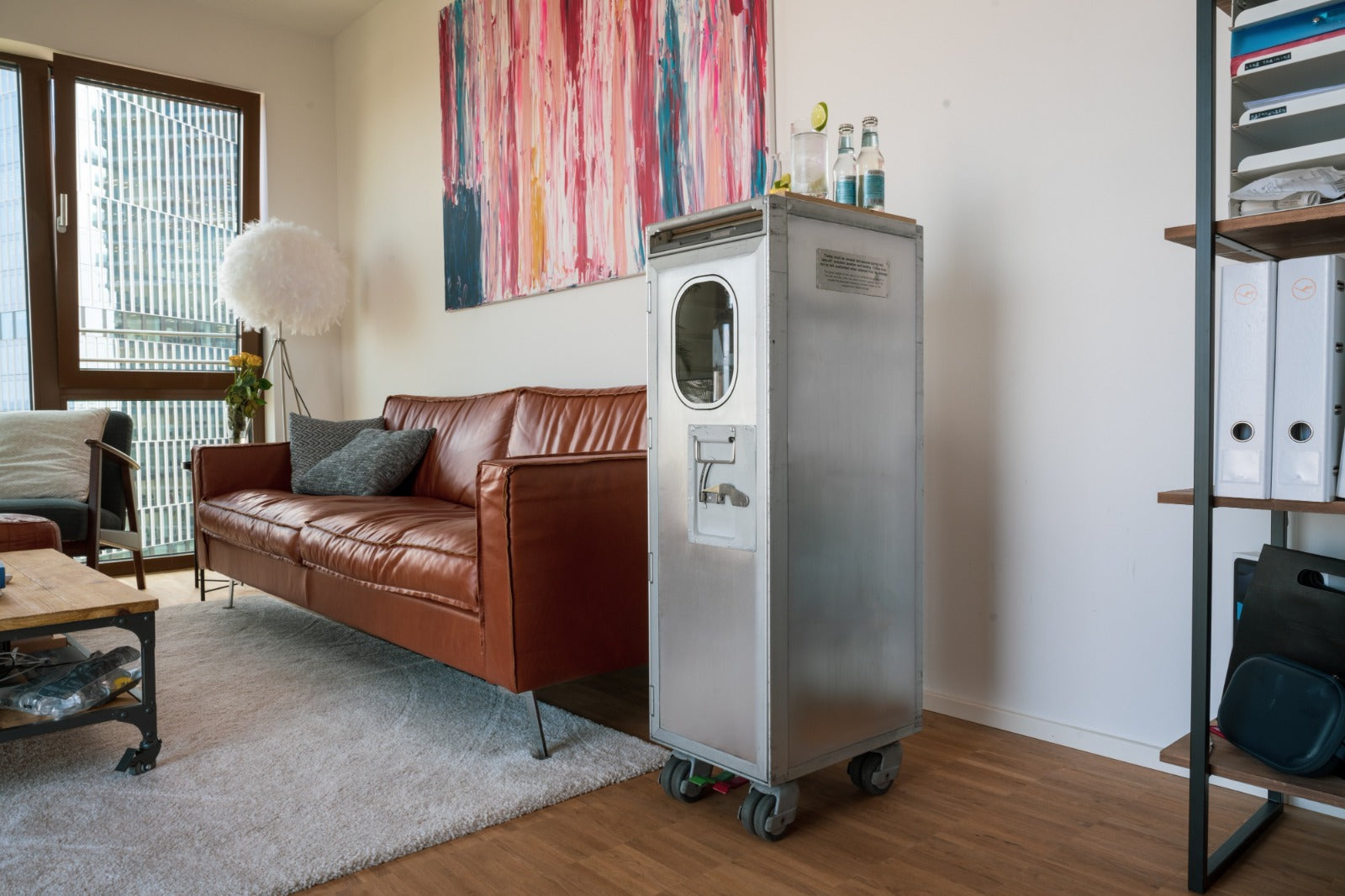Psychology of traveling in the living room
What furnishings have to do with wanderlust
Furnishings are more than just function and form. They also reflect desires, memories, and personal experiences. This is especially evident in furniture with a connection to aviation. Aircraft furniture Furniture such as windows, trolleys, or cabin boxes not only bring technical elements into the living space – they evoke associations of departure, expansiveness, and movement. Although they originate from a specific technical environment, they often have a surprisingly atmospheric effect in the living room. A view through a former airplane window can trigger images: What did the sky look like at 10,000 meters? Who sat in that seat? Where did the journey lead? These thoughts activate parts of our emotional memory. Furniture related to travel doesn't trigger nostalgia in the traditional sense, but rather creates a connection to movement patterns that are familiar to many.
Why aviation stays in your mind
For many people, flying is associated with formative experiences: the first vacation, a visit to family, a business trip, a long flight to an unknown country. These experiences are often emotionally charged and remain stored as images, sounds, or feelings. If later Airplane trolley in the living room or a Airplane window When mounted on the wall, it's not just the technical details that catch the eye. Rather, it triggers a memory linked to the journey itself. In psychology, this is called "associative memory." It works not through facts, but through moods. The sound of a trolley in the aisle. The closing of a luggage hatch. The light coming through a small window. All of these elements have been imprinted on our minds over the years.
Design with meaning
Aircraft furniture represents not only design or technology, but often also a conscious attitude toward living. It doesn't simply provide storage space or structure, but adds a second layer to the space—a conceptual, symbolic, or emotional one.
Typical examples of emotional spatial effects:
-
A window frame is reminiscent of a view, perspective and distant view
-
A trolley evokes associations of movement, service and structure
-
A board box stands for order in a compact form
-
Elements from the airline interior provide a connection to the world
Not all visitors immediately recognize the origin. But those who look closely quickly realize that this furniture conveys more than just its function.
Aircraft furniture as an invitation to pause
In a fast-paced environment, furniture with a story offers the opportunity to slow down. It stands still, yet speaks of movement. The living room doesn't become an airport, but it evokes the moment just before takeoff. The boarding, the letting go, the wonder. Many people report that when they look out of an airplane window, they imagine themselves boarding a plane. They remember the moment above the clouds, the lighting, the feeling of timelessness between takeoff and landing. This effect can't be planned, but it often arises where such objects are deliberately used – without excessive staging, but through simple presence.
Living spaces with an aviation theme
Those who integrate aviation furniture into their rooms often choose a theme: technology, travel, or movement. It doesn't matter whether the entire room is designed in the aviation style or just individual elements are integrated. Even a single component can be enough to create a connection. Airplane windows are well suited for walls in hallways, reading areas, or studies. Airplane trolleys can be used as mobile bars or storage solutions, while aircraft onboard boxes can be placed on shelves or under desks. Their technical clarity creates a functional effect, but their origins are emotional. This combination makes them an integral part of an interior that aims to be more than just practical.



